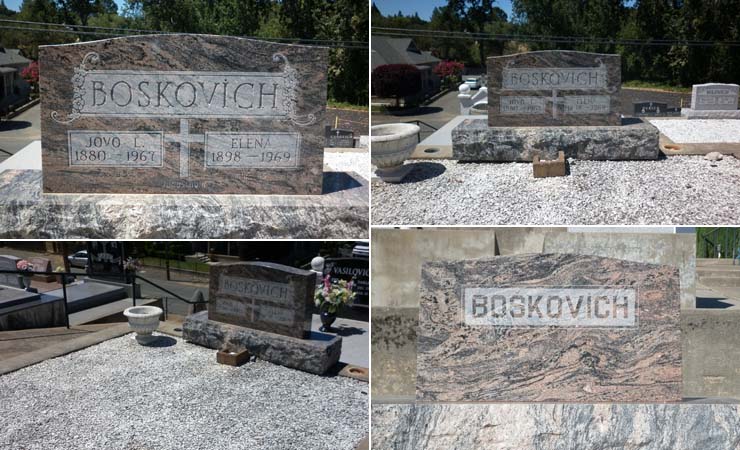Jovo L. 1880 - 1967, Elena 1898 - 1969
BOSKOVICH
JOVO L.
1880 - 1967
ELENA
1898 - 1969
A great man is one who collects knowledge the way a bee collects honey and uses it to help people overcome the difficulties they endure - hunger, ignorance and disease!
- Nikola Tesla
Remember, remember always, that all of us, and you and I especially, are descended from immigrants and revolutionists.
- Franklin Roosevelt
While their territory has been devastated and their homes despoiled, the spirit of the Serbian people has not been broken.
- Woodrow Wilson

Jovo L. 1880 - 1967, Elena 1898 - 1969
BOSKOVICH
JOVO L.
1880 - 1967
ELENA
1898 - 1969